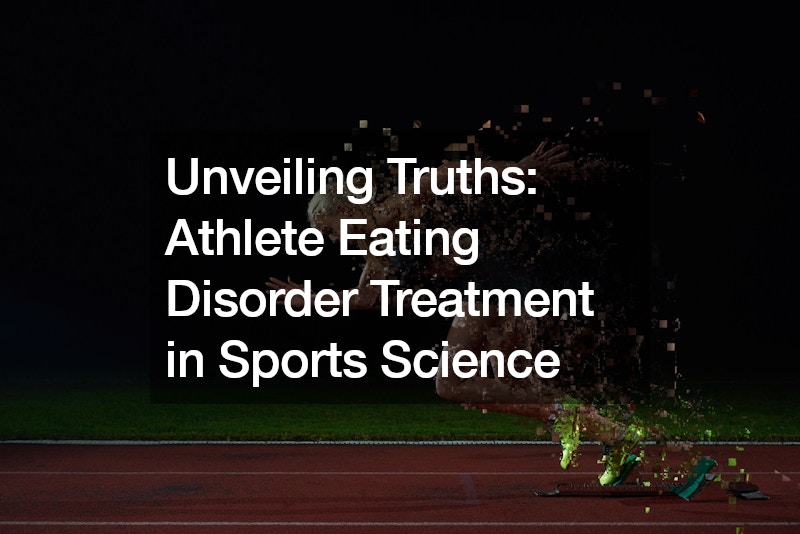
Athletes are often celebrated for their peak physical performance and unwavering dedication. However, the relentless pursuit of excellence can sometimes mask a hidden struggle: eating disorders. The pressure to maintain a certain weight or body composition can push athletes towards unhealthy eating patterns, jeopardizing their physical and mental health. Recognizing the prevalence of eating disorders in sports and implementing effective { athlete eating disorder treatment} programs is crucial for athlete well-being and long-term success.
The Athlete’s Vulnerability
Several factors contribute to the high prevalence of eating disorders among athletes. These include:
Sport-Specific Pressures: Athletes in weight-conscious sports like gymnastics, wrestling, or diving may feel immense pressure to maintain a specific body type for optimal performance. Focus on Appearance: The emphasis on aesthetics in some sports and the pressure to maintain a lean physique can fuel body image dissatisfaction and unhealthy eating behaviors.
Rigid Training Regimens: The intense training schedules and dietary restrictions often associated with high-level sports can blur the lines between healthy and disordered eating. Performance Anxiety: Athletes may resort to controlling their weight through restrictive eating or purging behaviors as a way to manage performance anxiety. The Hidden Costs of Eating Disorders
Eating disorders are not just about weight; they have serious consequences for an athlete’s physical and mental health.
Physical Impact: Eating disorders can lead to malnutrition, dehydration, weakened immune systems, and impaired bone health, significantly impacting athletic performance and increasing the risk of injuries. Mental Health Challenges: The emotional toll of an eating disorder can be severe, leading to depression, anxiety, social isolation, and even suicidal ideation. Disrupted Training: The obsession with food and weight can disrupt training, affecting focus, motivation, and overall performance. Sports Science Perspective: Recognizing the Signs
Sports science professionals play a crucial role in identifying athletes at risk for eating disorders. Here’s how they can contribute:
Understanding Risk Factors: Sports scientists can help coaches and trainers identify athletes who might be vulnerable due to specific body image pressures within their sport or a history of disordered eating. Screening and Monitoring: Implementing routine screenings and monitoring athletes’ weight, eating habits, and overall well-being is crucial for early detection. Building Trust: It is essential to create a safe and supportive environment where athletes feel comfortable discussing their concerns with coaches, nutritionists, or sports psychologists. Athlete Eating Disorder Treatment: Tailored Solutions
Effective {athlete eating disorder treatment} programs go beyond addressing weight and food issues. Here’s what a comprehensive approach looks like:
Interdisciplinary Team: A team approach is crucial, involving sports medicine professionals, therapists, registered dietitians, and coaches, all working together to create a personalized treatment plan. Cognitive Behavioral Therapy (CBT) helps athletes identify and challenge negative thoughts and beliefs about food and weight, promoting healthy eating patterns and a positive body image. Nutritional Counseling: Registered dietitians can help athletes develop healthy eating plans that address their individual needs and support optimal performance. Addressing the Underlying Causes: Treatment often explores the underlying factors that may have triggered the eating disorder, such as anxiety, perfectionism, or a history of trauma. Sports Science Perspective: Building a Supportive Culture
Beyond {athlete eating disorder treatment}, sports science professionals can actively promote a positive culture around food and body image in sports. Here’s how:
Focus on Performance: Shift the focus from appearance to overall performance and well-being. Celebrate athletes for their talents and hard work rather than focusing on weight. Promote Healthy Eating Education: Educate athletes and coaches about the importance of balanced nutrition for optimal performance and overall health. Role Models with Positive Body Image: Highlight athletes who promote healthy eating habits and embrace body diversity within their respective sports. Building a Support Network: Encourage open communication between athletes, coaches, and sports science professionals to foster a supportive environment where athletes feel empowered to seek help. Conclusion: Unmasking the Issue, Empowering the Athlete
Eating disorders are a significant concern in the world of sports. However, by recognizing the warning signs, implementing effective {athlete eating disorder treatment} programs, and fostering a supportive culture within sports organizations, sports science professionals can play a critical role in supporting athletes’ mental and physical well-being. By prioritizing athlete well-being over physique, the sports world can empower athletes to achieve their full potential on and off the field. Remember, early intervention and a multidisciplinary approach are key to successful {athlete eating disorder treatment}. By working together, the sports science community can ensure that athletic success is synonymous with overall health and well-being.
.

